
News
Parma Summer School 2021 – Food Safety Aspects of Integrated Food Systems
Registration is closed Parma Summer School The Parma Summer School 2021 is organised by the European Food Safety Authority (EFSA), the University of Parma, the School of Advanced Studies on Food and...
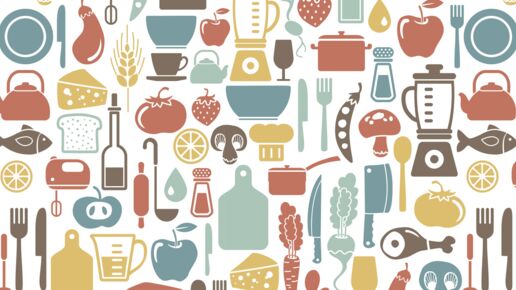
News
Grouping chemicals for joint assessments – have your say!
The latest instalment in our long-term strategy to deploy tools and approaches for assessing chemical mixtures is now open for consultation. Tell us what you think!
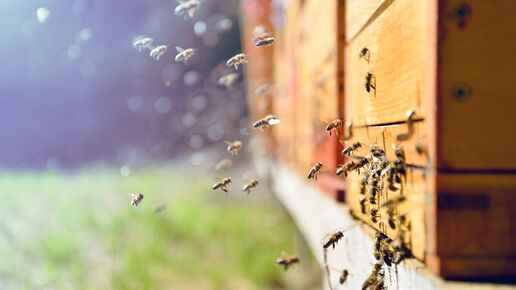
News
Protecting bees: a new way forward for risk assessment
EFSA has taken a major step forward in its efforts to help reverse the decline of insect pollinators in Europe by proposing a new approach to the environmental risk assessment of honey bees.

News
Regulated products: webinar series to support applicants
The entry into application of the Transparency Regulation has introduced new services, processes and provisions throughout the application lifecycle which affect – among others – business operators...

News
Titanium dioxide: E171 no longer considered safe when used as a food additive
EFSA has updated its safety assessment of the food additive titanium dioxide (E 171), following a request by the European Commission in March 2020. The updated evaluation revises the outcome of EFSA’s...
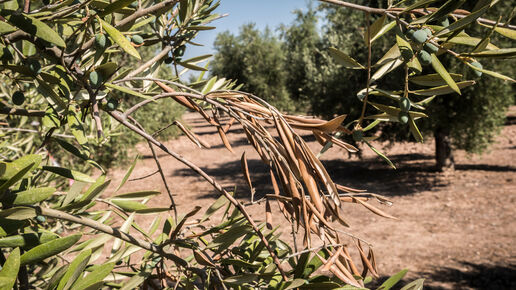
News
Xylella fastidiosa: ‘applied research’ the key to success
Scientists, academics and stakeholders from more than 60 countries participated in the 3rd European conference on Xylella fastidiosa.

News
EFSA reports set to inspire future risk communications in Europe
Four new reports published today by EFSA will provide a vast amount of technical information and best practice advice to help shape a future EU-wide food safety ‘General Plan for Risk Communication’...

News
African swine fever: risks from feed, bedding and transport
EFSA has assessed the risk of African swine fever being introduced to non-affected regions of the EU via pathways such as feed, bedding materials and empty pig transport vehicles returning from...

News
EFSA advises food suppliers on information for consumers
New guidance is available to help food suppliers decide what information to give consumers about storing food and time limits for consumption.

Infographic
Defrosting food safely
Frozen foods may contain bacteria that can grow after thawing and cause food poisoning. Follow these tips to defrost frozen foods safely.
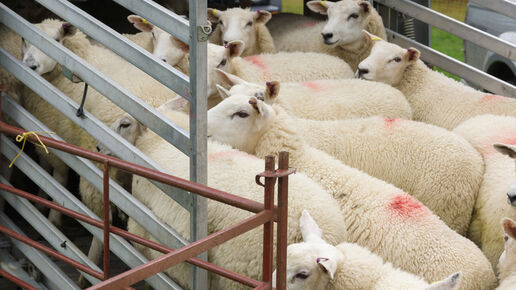
News
Animal transport: help us prepare our assessment
EFSA is gathering the views of stakeholders in the early stages of our scientific assessment on the welfare of animals during transport in the EU. The deadline for comments and contributions is 10...
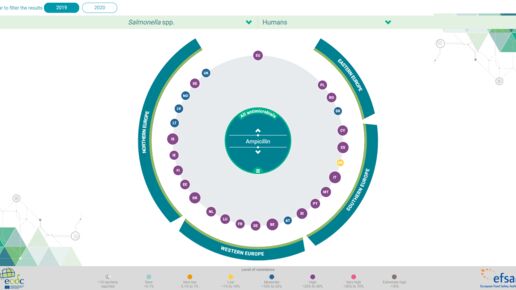
Data visualization
Antimicrobial resistance in Europe - 2019
Resistance of Salmonella and E. coli in food, animals and humans. Explore 2019 data country by country.

News
Resistance levels still high in bacteria causing foodborne infections
A sizeable proportion of Salmonella and Campylobacter bacteria is still resistant to antibiotics commonly used in humans and animals, as in previous years, says a report released today by the European...

News
Pesticides in food: latest figures published
The latest report on pesticide residues in food in the European Union is now available, giving a snapshot of residue levels found in a basket of products widely consumed in the territory.

Data visualization
2019 European Union report on pesticide residues - Annex I: EU-coordinated programme data visualization
EFSA dashboards are an interactive way of providing scientific information on EFSA topics. Click here to check out the data on pesticides residues from 2019.

News
Draft EFSA Strategy 2027 out for public consultation
EFSA welcomes feedback from all interested parties on its draft Strategy 2027. The public consultation is open until 9 May.

News
Transparency in risk assessment: a new era begins
New rules on transparency and sustainability are set to transform the way EFSA carries out its role as risk assessor in the EU food safety system. A new regulation, which applies from 27 March, will...

News
Veterinary drug residues: compliance still high
Data on the presence of residues of veterinary medicines and contaminants in animals and animal-derived food show high rates of compliance with safety levels set by the European Union, according to...

News
African swine fever: devising an ‘exit strategy’ for affected countries
EFSA has devised surveillance strategies that will help countries affected by African swine fever (ASF) to determine when the virus has stopped circulating among their wild boar populations. The...

News
EFSA website gets a makeover
We have made some changes to improve the usability of our website and freshen up the look and feel. We hope you like it!
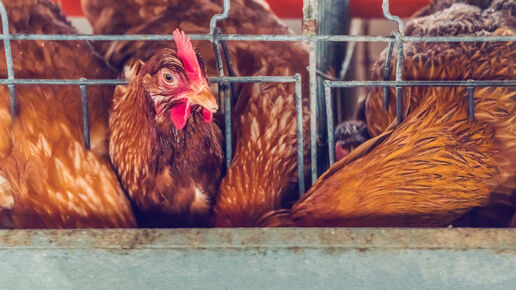
News
Avian influenza: 25 EU/EEA countries affected, latest report shows
Around 1,000 detections of highly pathogenic avian influenza (HPAI) were reported in 25 EU/EEA countries and the UK between 8 December 2020 and 23 February 2021, according to the latest overview of...

News
Smoke flavourings: updated guidance for applicants
The guidance is published together with a report outlining the outcome of the public consultation held in October-November 2020.
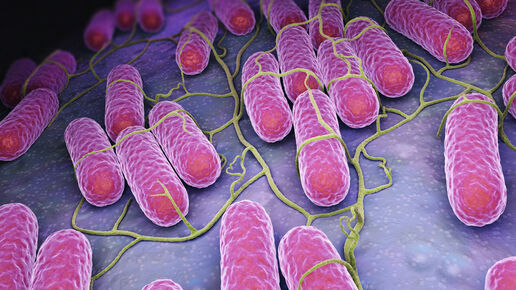
News
Campylobacter and Salmonella cases stable in EU
The number of reported human cases of illness caused by Campylobacter and Salmonella bacteria across Europe appears to be stabilising over the past five years, according to the latest report on...
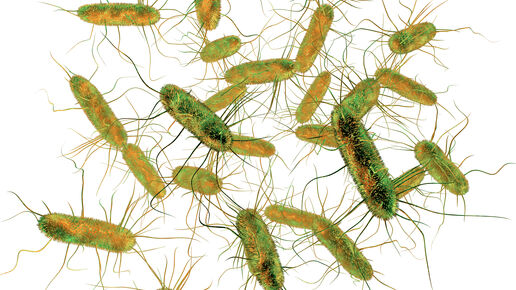
Data visualization
Foodborne outbreaks reported in 2019
EFSA dashboards are an interactive way of providing scientific information on EFSA topics. Click here to check out the latest data on foodborne outbreaks reported in 2019.

News
SARS-CoV-2 in mink: recommendations to improve monitoring
Early detection of SARS-CoV-2 (coronavirus) should be a priority objective for monitoring activities at mink farms in the European Union, a new report recommends. The report, compiled by EFSA and the...
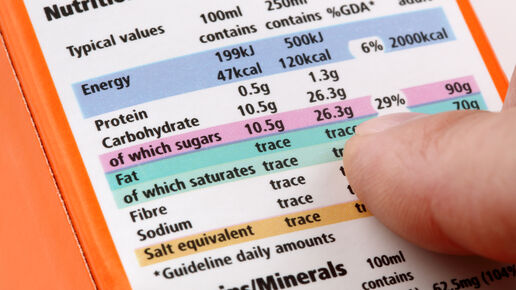
News
EFSA’s scientific advice to inform harmonised front-of-pack labelling and restriction of claims on foods
Our nutrition scientists will provide scientific advice to support the development of a future EU-wide system for front-of-pack nutrition labelling. It will also inform the setting of conditions for...

News
ONE – Health, Environment, Society – Conference 2022
21-24 June 2022 - Brussels and online Save the date! Food systems lie at the intersection of the many critical challenges facing us today: from fighting climate change, to halting biodiversity loss to...
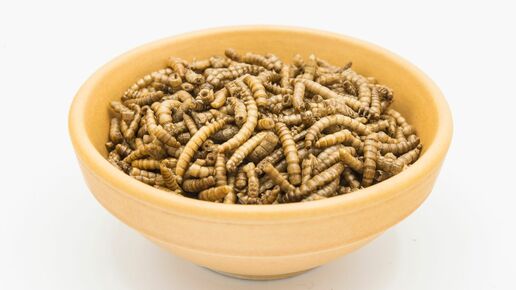
News
Edible insects: the science of novel food evaluations
Today’s batch of EFSA scientific opinions on novel food applications includes the first completed assessment of a proposed insect-derived food product. Our safety evaluations are a necessary step in...

News
New rules on transparency: detailed arrangements for stakeholders
The new regulation aimed at increasing the transparency of risk assessment in the food chain becomes applicable on 27 March 2021. As part of the implementation process, EFSA has published detailed...
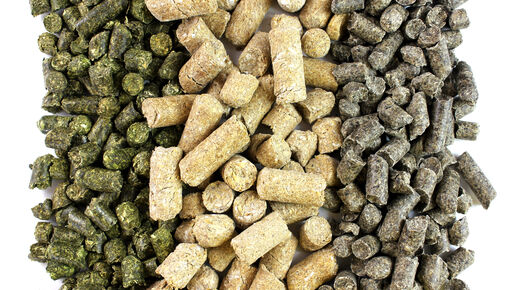
News
Feed additives: new guidance for renewal of authorisation
EFSA has published new guidance on the information applicants need to include in their dossiers for the renewal of the authorisation of feed additives. Feed additives are authorised for 10 years...

News
Farewell to Vittorio Silano: 1940-2020
Vittorio Silano, one of EFSA’s most longstanding and highly respected scientists, has died at the age of 80. Vittorio had been a stalwart of EFSA since its inception, having served as chairman of the...
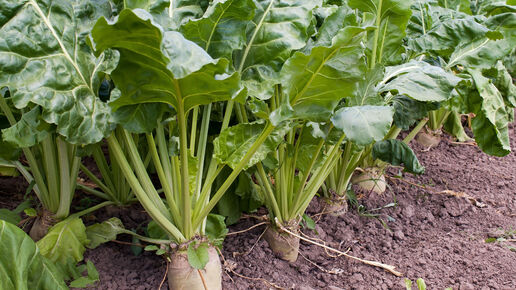
News
Pesticides: EFSA to examine emergency use of neonicotinoids
EFSA is to assess a number of emergency authorisations granted by Member States for the use of neonicotinoids in sugar beet in 2020. The request from the European Commission covers 21 emergency...

News
‘Use by’ or ‘best before’? New tool to support food operators
EFSA has developed a tool to help food business operators decide when to apply the ‘use by’ or ‘best before’ date to their products. The ‘use by’ date on food is about safety – foods can be eaten...

News
Existing guidance appropriate for assessment of genome editing in plants
Genome editing techniques that modify the DNA of plants do not pose more hazards than conventional breeding or techniques that introduce new DNA into a plant, an EFSA assessment concludes. The...

News
Avian influenza: virus spreading rapidly in Europe
The risk of avian influenza moving into previously unaffected European countries is high, according to an update published today by EFSA which shows that the virus is spreading rapidly across the...


